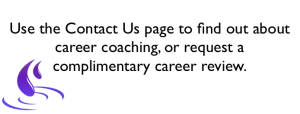 Happy May Day everyone! Spring has officially sprung and today‘s date has a double meaning in the Nothern hemisphere: spring festival and International Workers’ Day.
Happy May Day everyone! Spring has officially sprung and today‘s date has a double meaning in the Nothern hemisphere: spring festival and International Workers’ Day.
If spring‘s message for a new beginning this year means a new job to you, keep reading because this article will help you a lot in your job hunting. Are you sabotaging yourself by using the ‘wrong‘ job search tactics?
Whether you are looking for a career change, a different working environment, or you‘re currently unemployed and looking for a new job, chances are that as a job seeker you do have a strategy in place. From how to write a winning CV and prepare for interviews, to how to promote yourself and include the hidden job market in your search.
We‘ve shared a lot of tips for finding a new job and we‘ve covered a lot of job searching tactics in different phases of the process in our articles so far. However, the article I want to share with you today by Heather R. Huhman, published on Doostang, discusses all the things that you shouldn’t do. A beautiful wrap-up of the job search tactics that won’t get you the desired result.
Among the things discussed in this article are the importance of doing your research before applying for a job, the negative impact of proceeding your job search based on fear ending up with a job offer you don’t like and outdated cover letters.
” Ever had a really great interview or found a job posting that seemed like an absolute perfect match? Then, after landing the interview, you may figured you were a shoe-in for the position. So you sat back and waited for the offer letter to come through.
But nothing ever came.
There are currently 6.7 million job seekers in the U.S. and, although job prospects are getting better, the reality remains that there are still a number of qualified candidates looking for jobs in a limited job market. The position you were perfect for likely had at least 20 other perfect candidates apply for the job as well. The bottom line? In order to be successful in your job search, you just can’t afford any slip-ups.
So, if you want to land your next job, stop taking part in these job search tactics immediately: ….. ”
Read the whole article here: “5 Job Search Tactics You Need To Stop Now”
.

 If you are currently an active job seeker, you certainly need to take the hidden job market into consideration for maximum results in your job search.
If you are currently an active job seeker, you certainly need to take the hidden job market into consideration for maximum results in your job search.
 Many job seekers feel uncomfortable when asked salary questions in a job interview. I had a phone call today from a friend who is currently searching for a new job, and he told me he landed two interviews last week. That’s excellent news! And then the question arose: “The recruiter asked me about my salary expectations. What’s the proper answer to this question?”
Many job seekers feel uncomfortable when asked salary questions in a job interview. I had a phone call today from a friend who is currently searching for a new job, and he told me he landed two interviews last week. That’s excellent news! And then the question arose: “The recruiter asked me about my salary expectations. What’s the proper answer to this question?” When you’re searching for a new job, chances are that you won’t like every job offer you get. Maybe the salary is lower than your standards, the required working hours don’t leave you any time for your family, or the company culture doesn’t suit you.
When you’re searching for a new job, chances are that you won’t like every job offer you get. Maybe the salary is lower than your standards, the required working hours don’t leave you any time for your family, or the company culture doesn’t suit you. Before starting your research to find a new job, you have to be sure that this is the best time to do so. We already know
Before starting your research to find a new job, you have to be sure that this is the best time to do so. We already know 